VSS Workshop on Funding in the US
No registration required. First come, first served, until full.
Saturday, May 18, 2019, 12:45 – 1:45 pm, Sabal/Sawgrass
Moderator: David Brainard, University of Pennsylvania
Discussants: Todd Horowitz, National Cancer Institute; Lawrence R. Gottlob, National Science Foundation; and Cheri Wiggs, National Eye Institute
You have a great research idea, but you need money to make it happen. You need to write a grant. This workshop will address NIH and NSF funding mechanisms for vision research. Cheri Wiggs (National Eye Institute) and Todd Horowitz (National Cancer Institute) will provide insight into the inner workings of the NIH extramural research program. Larry Gottlob will represent the Social, Behavioral, and Economic (SBE) directorate of the NSF. There will be time for your questions.
|
|
|
|
VSS Workshop on Funding Outside the US
No registration required. First come, first served, until full.
Sunday, May 19, 2019, 12:45 – 1:45 pm, Sabal/Sawgrass
Moderator: Laurie Wilcox, York University, Toronto
Panelists: Thiago Leiros Costa, KU Leuven; Anya Hurlbert, Newcastle University; Concetta Morrone, University of Pisa; and Cong Yu, Peking University
You have a great research idea, but you need money to make it happen. You need to write a grant. This funding workshop will be focused specifically on disseminating information about non-US funding mechanisms appropriate for vision research. The format of the workshop will be a moderated panel discussion driven by audience questions. The panelists are vision scientists, each of whom has experience with at least one non-US funding mechanism. Because funding opportunities are diverse and differ across countries, however, the workshop will also encourage information sharing from the audience.
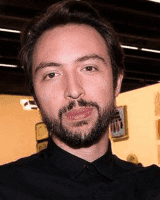 Thiago Leiros Costa
Thiago Leiros Costa
KU Leuven
Thiago Leiros Costa is a Marie Skłodowska-Curie fellow at KU Leuven, Belgium. He is currently focused on accessing neural correlates of Gestalt-like phenomena and on the role that predictive processing plays in low and mid-level vision. Being a neuropsychologist and visual neuroscientist, he is interested in basic research in the field of perception per se, but also on opportunities for translational research in psychology (using tasks and methods derived from basic research to address clinically relevant questions). This has led him to work with different clinical populations, currently focusing on visual predictive processing in Autism. He has experience with multiple techniques, such as psychophysics, EEG, non-invasive brain stimulation and is currently planning his first study using fMRI.
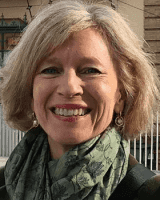 Anya Hurlbert
Anya Hurlbert
Newcastle University
Anya Hurlbert is Professor of Visual Neuroscience, Director of the Centre for Translational Systems Neuroscience and Dean of Advancement at Newcastle University. She co-founded Newcastle’s Institute of Neuroscience in 2003, serving as its co-Director until 2014. Hurlbert’s research focuses on colour perception and its role in everyday visual and cognitive tasks, in normal and atypical development and ageing. She is also interested in applied areas such as digital imaging and novel lighting technologies. Professor Hurlbert is active in the public understanding of science, and has devised and co-curated several science-based art exhibitions, including an interactive installation at the National Gallery, London, for its 2014 summer exhibition Making Colour. She is former Chairman of the Colour Group (GB) and Scientist Trustee of the National Gallery, and currently on the editorial board of Current Biology as well as several international advisory boards. Funding for her personal research has come from the Wellcome Trust, UKRI (EPSRC/MRC), the European Commission (EU), charities, and industry. She is currently a PI in the EU H2020 Innovative Training Network “Dynamics in Vision and Touch”.
 Concetta Morrone
Concetta Morrone
University of Pisa
Maria Concetta Morrone is Professor of Physiology in the School of Medicine of the University of Pisa, Director of the Vision Laboratory of the IRCCS Fondazione Stella Maris, and Academic Director of the inter-University Masters in Neuroscience. She is a member of the prestigious Accademia dei Lincei and has been awarded major national and international prizes for scientific achievements. From an initial interest in biophysics and physiology, where she made many seminal contributions, she moved on to psychophysics and visual perception. Over the years her research has spanned spatial vision, development, plasticity, attention, color, motion, robotics, vision during eye movements and more recently multisensory perception and action. She has coordinated many European Community grants over many founding schemes, and was awarded in 2014 an ERC-IDEA Advanced Grant for Excellence in Science.
 Cong Yu
Cong Yu
Peking University
Cong Yu is a professor at Peking University. He studies human perceptual learning using psychophysical methods, and macaque visual cortex using two-photon calcium imaging.
 Laurie Wilcox
Laurie Wilcox
York University
Laurie M. Wilcox is a Professor in Psychology at York University, Toronto, Canada. She uses psychophysical methods to study stereoscopic depth perception. In addition to basic research in 3D vision, Laurie has been involved in understanding the factors that influence the viewer experience of 3D media (IMAX, Christie Digital) and perceptual distortions in VR (Qualcomm Canada). Her research has been funded primarily by the Natural Sciences and Engineering Research Council (NSERC) of Canada which supports both basic and applied research programs. She is also familiar with contract-based research in collaboration with industry and government agencies.

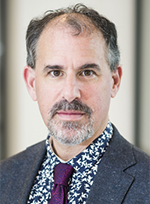 Todd Horowitz
Todd Horowitz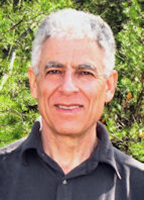 Lawrence R. Gottlob
Lawrence R. Gottlob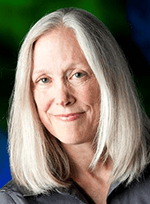 Cheri Wiggs
Cheri Wiggs David Brainard
David Brainard